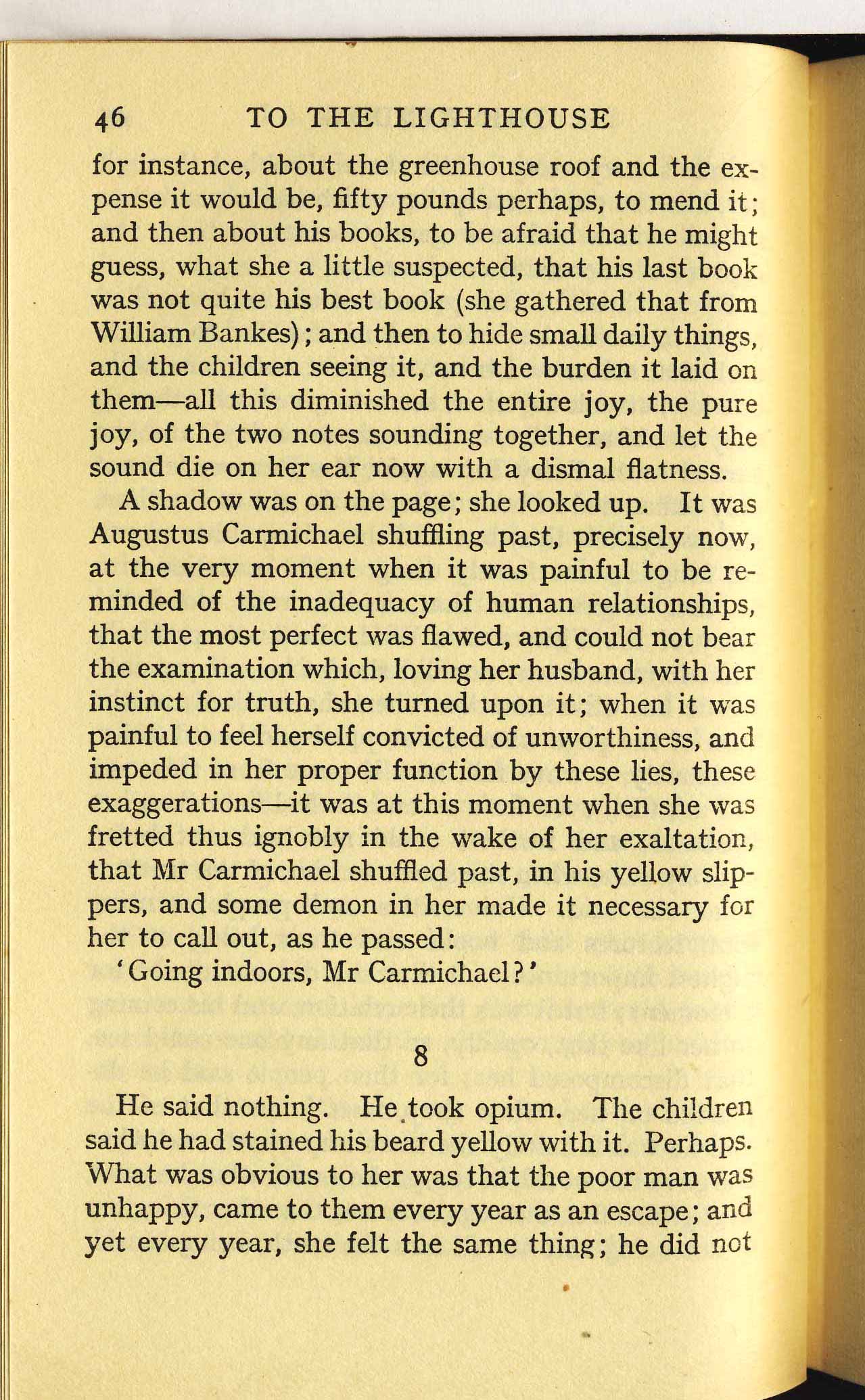
46 TO THE LIGHTHOUSEfor instance, about the greenhouse roof and the ex-pense it would be, fifty pounds perhaps, to mend it;and then about his books, to be afraid that he mightguess, what she a little suspected, that his last bookwas not quite his best book (she gathered that fromWilliam Bankes); and then to hide small daily things,and the children seeing it, and the burden it laid onthemŌĆöall this diminished the entire joy, the purejoy, of the two notes sounding together, and let thesound die on her ear now with a dismal flatness.A shadow was on the page; she looked up. It wasAugustus Carmichael shuffling past, precisely now,at the very moment when it was painful to be re-minded of the inadequacy of human relationships,that the most perfect was flawed, and could not bearthe examination which, loving her husband, with herinstinct for truth, she turned upon it; when it waspainful to feel herself convicted of unworthiness, andimpeded in her proper function by these lies, theseexaggerationsŌĆöit was at this moment when she wasfretted thus ignobly in the wake of her exaltation,that Mr Carmichael shuffled past, in his yellow slip-pers, and some demon in her made it necessary forher to call out, as he passed:ŌĆśGoing indoors, Mr Carmichael?'8He said nothing. He took opium. The childrensaid he had stained his beard yellow with it. Perhaps.What was obvious to her was that the poor man wasunhappy, came to them every year as an escape; andyet every year, she felt the same thing; he did not









